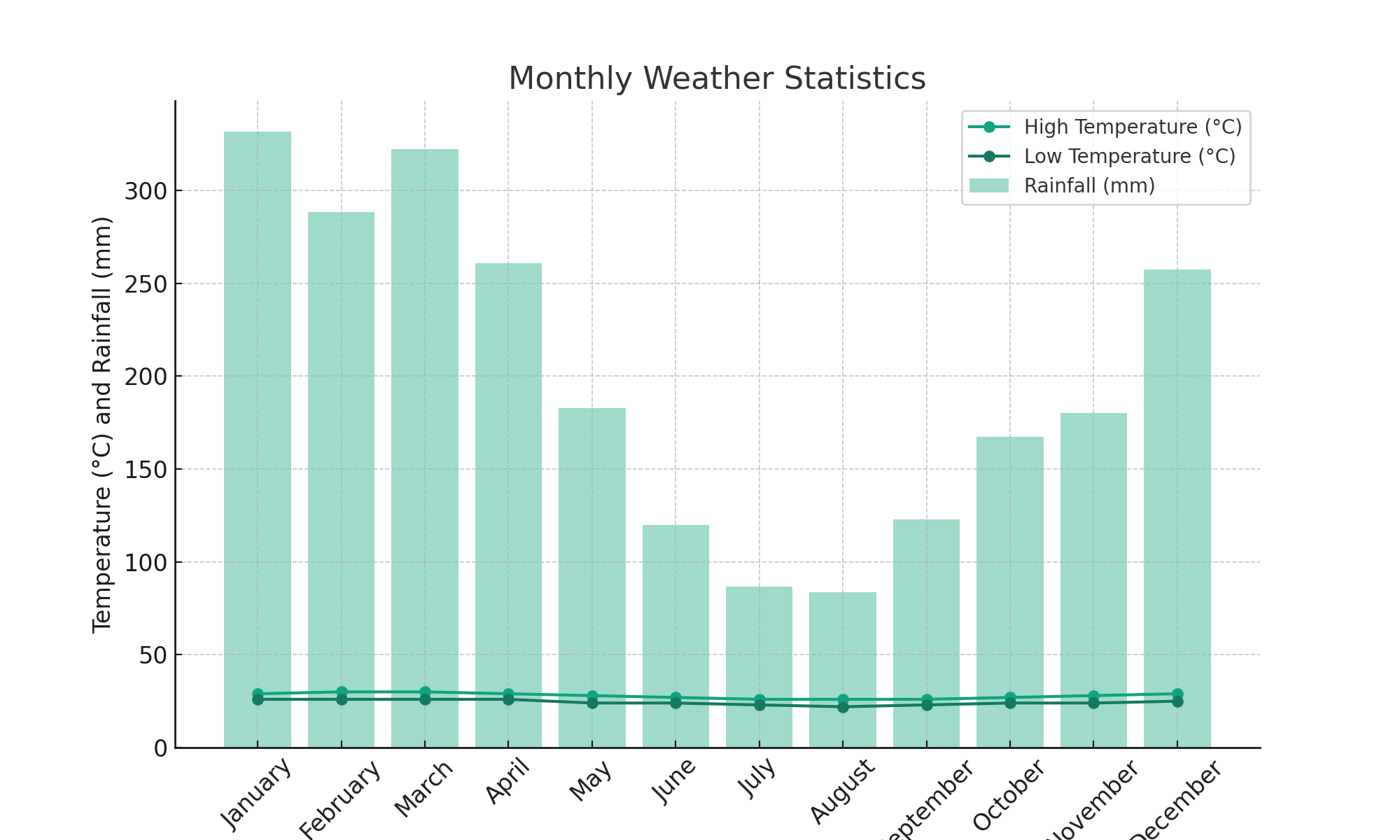Planning the Perfect Trip to Fiji: When Is the Best Time to Visit?


Berlin’s WWII Sites & Museums: A Journey Through History
Berlin’s WWII Sites & Museums: A Journey Through HistoryBerlin offers a...

Swiss Travel Pass: Your Ultimate Guide to Traveling Switzerland
Swiss Travel Pass: Your Ultimate Guide to Traveling SwitzerlandThe Swiss...

Planning Your London Trip: Ideal Duration and Itineraries
Planning Your London Trip: Ideal Duration and ItinerariesPlanning a trip to...

Explore Surfers Paradise: Guide to Australia’s Vibrant Beachfront
Explore Surfers Paradise: Guide to Australia's Vibrant BeachfrontImagine a...

Planning Your Trip to Munich’s Oktoberfest 2024
Planning Your Trip to Munich's Oktoberfest 2024Oktoberfest, Munich's most...
Fiji, with its stunning beaches, lush landscapes, and vibrant culture, is a dream destination for many Australians seeking a tropical getaway. However, planning the perfect trip to Fiji requires careful consideration of when to visit to ensure an unforgettable experience. In this comprehensive guide, we’ll delve into the factors that can influence your decision, including weather conditions, peak tourist seasons, seasonal activities, and essential information about health considerations.

Fiji’s Climate and Seasons
Fiji boasts a tropical climate that offers warm temperatures year-round. However, understanding the distinct seasons can help you make the most of your trip.
Wet Season (Summer): November to April
During the wet season, which spans from November to April, Fiji experiences higher temperatures, increased rainfall, and higher humidity. While this period may not be ideal for certain activities, it offers its own unique charm.
Dry Season (Winter): May to October
The dry season, on the other hand, occurs from May to October and brings cooler and more comfortable weather conditions, making it ideal for outdoor activities.
Best for Outdoor Activities: May to October
The weather plays a crucial role in determining which activities you can enjoy during your visit to Fiji. If you’re into water sports like swimming and snorkeling, the dry season is your best bet due to its calm seas and excellent underwater visibility. For hiking and sightseeing, the cooler and less humid dry season months are also preferable.
As you can imagine, Fiji’s high tourist season coincides with the dry winter months, from May to October. This period offers the most favorable weather conditions, with pleasant temperatures and minimal rainfall. It’s no surprise that this season attracts a large number of visitors looking for a tropical paradise.
If you’re interested in witnessing majestic humpback whales, plan your visit during the dry season from July to September when these magnificent creatures migrate through Fijian waters.
Best for Surfing, River Cruises & Waterfall Chasing: November to April
During the wet season, you may not have the best sun, but don’t forget about the water side of Fiji. Surfers will find the best waves during the wet season when tropical storms and swells create ideal conditions. The wet season, from November to April, offers exciting surfing opportunities.
While river cruises can be enjoyed year-round, the wet season brings higher water levels, making it an optimal time to take relaxing river cruises along Fiji’s picturesque rivers and streams.
The wet season results in fuller and more dramatic waterfalls. If you’re a fan of waterfall hikes and stunning natural scenery, consider visiting Fiji from November to April.

Year-Round Activities
Don’t let the weather limit your imagination. There is a lot to explore in Fiji no matter rain or shine.
Fiji’s luxurious spa retreats offer relaxation and rejuvenation year-round. Whether you visit during the dry or wet season, you can pamper yourself and unwind in paradise.
Fiji’s natural hot springs and mud baths are therapeutic and enjoyable year-round, offering relaxation and rejuvenation amidst stunning natural settings.
Be prepared for occasional rain showers year-round by planning indoor activities like museum visits, art gallery tours, and exploring local markets.
Saving Money by Timing Your Visit
Australians tend to flock to Fiji during their own winter months, between June and August. This is when you’ll find the highest number of Australian tourists, which can impact prices and availability. If you prefer a quieter and potentially more affordable experience, consider visiting during the shoulder seasons just before or after this peak period.
Visiting during the shoulder or off-peak seasons can also lead to significant savings on accommodation and flights. These periods offer competitive rates and reduced crowds, allowing you to enjoy Fiji’s beauty without breaking the bank.

Local Events and Festivals
To truly immerse yourself in Fijian culture, consider planning your visit around local events and festivals. Fiji hosts numerous cultural celebrations throughout the year, such as the Bula Festival in July and the Holi Festival in Feburary or March. These events offer a unique opportunity to experience Fijian traditions, music, and cuisine.
| Month | Event/Festival | Description | Location |
|---|---|---|---|
| February/March | Holi | Hindu “Festival of Colors” celebrated with vibrant colored powders, music, and dancing. | Throughout Fiji |
| March/April | Easter | Major Christian festival with Good Friday and Easter Sunday as official public holidays, observed with church services and family gatherings. | Throughout Fiji |
| August | Bula Festival | Annual event in Nadi celebrating Fijian culture and heritage, featuring traditional dance, music, and food. | Nadi, Viti Levu |
| August | Hibiscus Carnival/Festival | A vibrant festival in Suva, featuring music, dance, and cultural displays, as well as the crowning of the Hibiscus Queen. | Suva, Viti Levu |
| August | Friendly North Festival | Cultural event in Labasa showcasing the traditions and customs of the Northern region, including food, dance, and crafts. | Labasa, Vanua Levu |
| September | Coral Coast Festival | Festival in Sigatoka celebrating the beauty and culture of Fiji’s Coral Coast, with arts, crafts, and local cuisine. | Sigatoka, Viti Levu |
| October 10 | Fiji Day | Commemorating Fiji’s independence from British colonial rule with various events and festivities. | Throughout Fiji |
| October/November | Diwali | Hindu “Festival of Lights” celebrated with the lighting of lamps, colorful decorations, and traditional sweets. | Throughout Fiji |
| November 6 | Music | BlueSky Fiji “Music Festival,” an international music festival held on a tropical island, featuring a diverse lineup of artists and genres. | Various Islands in Fiji |
Health Considerations and Common Illnesses in Fiji
When planning a visit to Fiji, it’s crucial to be mindful of potential health considerations and prevalent illnesses that travelers may encounter. While Fiji is generally a safe and welcoming destination, the tropical environment and local conditions can present certain health risks. Here are important health considerations to bear in mind:
Dengue Fever: Fiji experiences intermittent outbreaks of dengue fever, a viral illness transmitted by mosquitoes. To minimize the risk of contracting dengue, it’s advisable to take preventive measures such as using insect repellent, wearing long-sleeved clothing, and choosing accommodations equipped with mosquito nets. This is particularly important during the wet season when mosquito activity tends to be higher.
Leptospirosis: Leptospirosis is a common infection in Fiji. It is caused by bacteria that are spread through the urine of infected animals and can persist in water or soil for extended periods. Travelers should exercise caution and avoid contact with potentially contaminated freshwater sources, such as lakes and rivers in affected areas, when engaging in activities like swimming, wading, kayaking, or rafting.
Typhoid & Hepatitis A: It is generally recommended to receive vaccines for both typhoid and hepatitis A, as there is a risk of transmission, especially for those who consume local seafood and produce or venture beyond established hotels or cruise ships during their stay in Fiji. Combining these vaccinations provides added protection against these waterborne diseases.
Remember to consult with a healthcare provider or travel clinic for personalized advice and vaccinations before your journey.
Conclusion
Selecting the best time to visit Fiji from Australia is a key factor in ensuring a memorable and enjoyable vacation. By considering weather conditions, peak tourist seasons, budget considerations, local events, seasonal activities, local insights, and essential information about accommodation and transportation, you can plan a trip that perfectly suits your preferences and expectations. Fiji’s natural beauty and warm hospitality await you, so start planning your dream getaway today!

